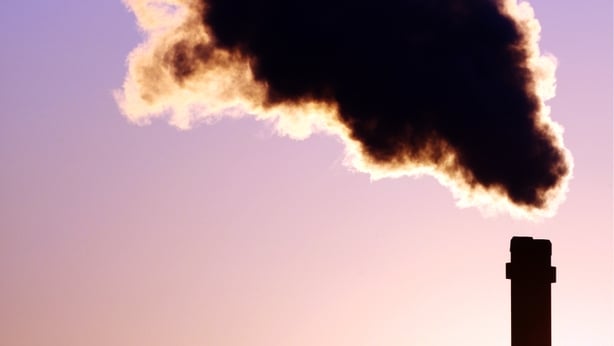A panel of independent experts who annually assess delivery of the climate commitments in the Programme for Government have awarded the Government a 'C+' grade this year and warned that overall performance on environmental issues is still a long way off where it needs to be.
The assessment, which was commissioned by Friends of the Earth, noted progress in some areas such as renewable energy but said these were a cause for hope rather than celebration and that the Government now needs to deliver transformational change.
The Coalition leaders need to be upfront with people that a certain amount of inconvenience and disruption to their lives is unavoidable if climate chaos and destruction down the line is to be prevented, according to Friends of the Earth.
The report examines, and scores, the pace of delivery of nearly 300 environmental or climate-related commitments contained in the Programme for Government to see how well the Government is keeping its word on its own promises.
Improvements in the energy sector stood out, such as the first offshore wind auction, progress on international electricity interconnectors, residential solar power, smart meters, and less fossil fuel usage.

However, agriculture and forestry stand out for opposite reasons, with the report concluding that the Government is flirting with failure in this sector despite being very limited in ambition to start with.
It said the current agri-food strategy is still responsible for growing nutrient pollution and poor water quality, and that such trends now appear to be locked in for the remainder of this Government.
Director of Friends of the Earth Oisín Coghlan said the assessment shows the Government is delivering incremental climate action rather than the transformational climate action that is needed.
He fears the Coalition leaders will become more timid as the next general election approaches.
We need your consent to load this rte-player contentWe use rte-player to manage extra content that can set cookies on your device and collect data about your activity. Please review their details and accept them to load the content.Manage Preferences
University College Dublin's Dr Cara Augustenborg, who chaired the assessment panel, said progress is being made to improve Ireland's environmental health in most areas but it is frustrating that this work is not yet apparent in people's lives.
Another of the assessors, Dr Paul Deane from University College Cork, said there needs to be more focus on "climate agility".
"Many of the correct actions are being taken but just not at a speed that is quick enough or a scale that is large enough" he said.
We need your consent to load this rte-player contentWe use rte-player to manage extra content that can set cookies on your device and collect data about your activity. Please review their details and accept them to load the content.Manage Preferences
The Overall Assessment of whether the Government is keeping its promises on climate and the environment found that while there is cause for hope from the overall result of this year’s review, there is no cause for celebration as Ireland is still well behind where it needs to be with respect to climate and environmental action.
- Improvements: Significant progress was made in Energy related commitments compared to last year (from 4 to 7), along with moderate improvement in Buildings (from 6 to 7) and marginal improvement in Marine commitments (from 5 to 5.5).
- Declines: There was a moderate decline in performance in the Waste sector (from 8.5 to 7.5) due to lack of clear implementation after an excellent start in policy development and a slight decline in progress on Transport commitments (from 7 to 6.5) due to lack of spending on active transport infrastructure and a rebound of greenhouse gas emissions in this sector.
- No change: Climate and Air Quality commitments demonstrated similar progress compared to 2022, with Climate commitments achieving moderate progress (6 out of 10) and Air Quality commitments achieving good progress (7 out of 10). As with last year, the Agriculture and Forestry commitments demonstrated poor progress (4 out of 10), and the Government continues to flirt with failure in this area. Progress in Drinking and Waste Water commitments achieved the same poor score as last year (4 out of 10) since the Water Framework Directive continues to be neglected. However, investment in water infrastructure has improved.
Overall, the improved grade of C+ reflects additional effort and investment on environmental commitments by the Government this year.
While the Government’s attentiveness to environmental issues is clearly improving, it is still a long way off where it could be and where it needs to be.

Critically endangered commitments: The judges identified for the first time some important commitments now in danger of not being achieved by the Government over its five-year term.
On the Government’s Climate commitments: There is a high likelihood that Ireland will not meet its commitments on the first carbon budget and the sectoral emissions ceilings. Solutions do exist.
The Government needs to implement the Climate Action Plan in full and scale up the actions we are undertaking already. In addition, more clarity regarding the legal consequences of failing to meet these commitments; better cross-departmental collaboration; and improved climate engagement between the Government and the public in communicating the need and rationale for climate measures would all support the likelihood of achieving this critical promise to the people of Ireland.
On the Government’s Nature and Biodiversity commitments: The recent recommendations from both the Citizens’ Assembly on Biodiversity Loss and the Children and Young People’s Assembly on Biodiversity Loss affirmed the Government’s own commitment to "Promote biodiversity initiatives across primary, post-primary and third-level sectors, and ensure that schools, colleges, and universities across the country play an active role in providing areas to promote biodiversity."
Urgent engagement to develop stronger education and awareness offerings on nature and biodiversity across all levels of education is needed to achieve this commitment.

On the Government’s Drinking and Waste-Water commitments: Most Ireland’s rivers, lakes and estuaries are failing to meet Water Framework Directive standards in contrast to the Government’s own promise to "ensure that the State complies with the EU Water Framework Directive".
The EPA’s water quality indicators report confirms that Ireland’s water quality worsened in 2022 compared to 2021, with dangerous nitrate and phosphate concentrations in many of Ireland’s river sites, estuarine, and coastal water bodies.
This was primarily attributed to intensive agricultural activities, wastewater discharges, and agricultural run-off. Better catchment-wide planning, River Basin Management Plans, and guidance to local authorities could help address this serious environmental and public health issue.
On the Government’s Agriculture and Forestry commitments: The Government’s agri-environmental commitments favour a business-as-usual approach with minimal transformation of the current food production system.
Even with such limited ambition, the State is still largely failing to achieve its own promises. While greenhouse gas emissions reduced slightly in the agricultural sector in 2022, this was driven by high fertiliser costs rather than policy interventions and could easily rebound in the future as prices stabilize.
More proactive interventions and less complacency by the Government is essential for agriculture to achieve its emission reduction targets and play its part in improving water quality. In addition, adaptation to future climate change must be given more consideration regarding risks to food production.








